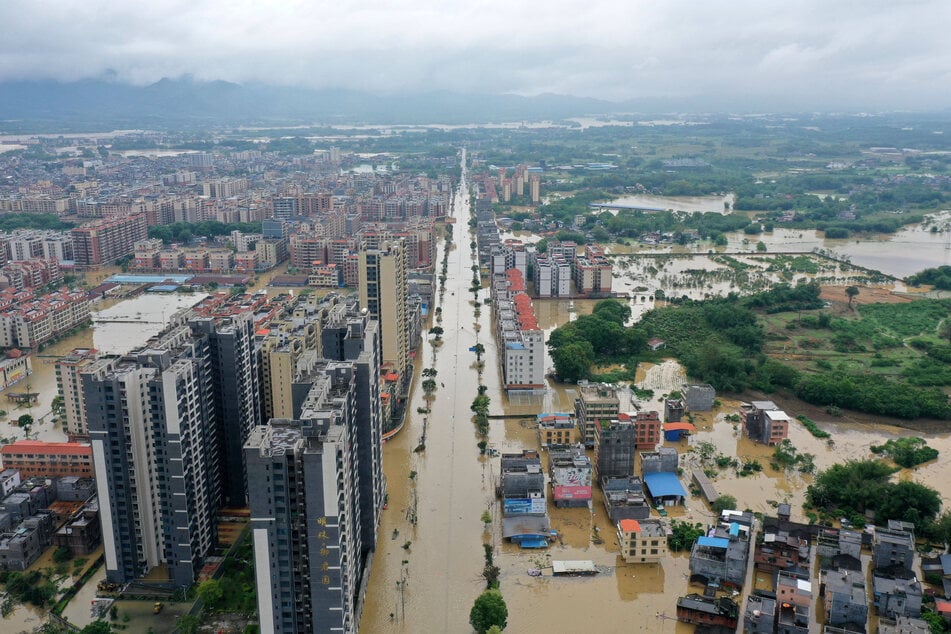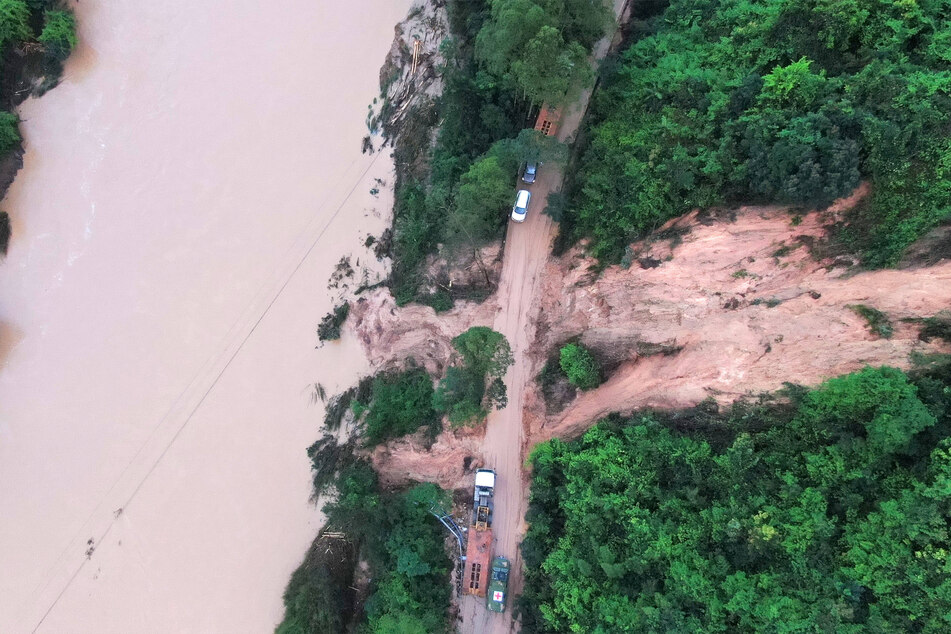UN says Asia hit hardest by climate disasters as China sees massive flooding
Guangdong, China - More than 100,000 people have been evacuated as record rainfall hits the Chinese province of Guangdong, threatening extensive and lethal flooding. But this is not Asia's first rodeo.

As of writing, four people have died and at least 10 are missing in the Guangdong region after severe rainfall caused extensive flooding.
The "once a century" event has seen swelling rivers threaten flash flooding even in the megacities of Shenzhen and Guangzhou.
News of the dramatic events in China's south come as the United Nations' World Meteorological Organization (WMO) released a report Tuesday revealing that Asia is the region worst hit by climate change-related disasters and extreme weather.
According to the WMO, 79 disasters directly associated with "hydro-meteorological hazard events" were reported in Asia throughout 2023 alone.
On top of that, "Asia is warming faster than the global average."
United Nations report raises the alarm over climate-related disasters

The WMO released its State of the Climate in Asia 2023 report on April 23, warning that Asia is the world's most disaster-prone region. They specifically pointed out that flooding is one of the biggest risks associated with climate change.
The report included five key messages:
- Global warming is accelerating.
- Water-related hazards are the worst threat (though extreme heat is close behind).
- Melting glaciers are threatening water security.
- Sea temperatures are at an all-time high.
- Asia is the most disaster-prone region in the entire world.
In a statement, WMO Secretary-General Celeste Saulo called the report "sobering" and pointed out that 2023 was the hottest year yet on record. In particular, she noted that Asian countries have experienced "a barrage of extreme conditions, from droughts and heatwaves to floods and storms."
"Climate change exacerbated the frequency and severity of such events," Saulo explained, "profoundly impacting societies, economies, and, most importantly, human lives and the environment that we live in."
As the findings were released, Guangdong – China's most important manufacturing hub, and home to almost 130 million people – is being threatened by severe storms and flooding.
Yet, China is in a better position to respond to such disasters than many of its poorer neighbors, largely due to its immense wealth and humanpower, which give it the resources to react quickly and effectively.
"In 2023, vulnerable countries were disproportionately impacted," said Celeste Saulo. "For example, tropical cyclone Mocha, the strongest cyclone in the Bay of Bengal in the last decade, hit Bangladesh and Myanmar. Early warning and better preparedness saved thousands of lives."
Cover photo: imago/Xinhua
